The Miscarriage
By Sohana Manzoor
Shahzia Sikander - Eye-I-ing Those Armorial Bearings (1989–97), Watercolor on tea-stained wasli paper, Collection of Carol and Arthur Goldberg.
© Shahzia Sikander. Courtesy: the artist and Sean Kelly Gallery, New York.
Image description: An upside-down portrait of a human figure is depicted towards the upper right side of the painting, and is surrounded by an array of symbols, icons, and other human portraits. The aforementioned portrait is framed by a light-yellow halo, around which are multiple arms, many holding weapons such as daggers and swords. To the left of the portrait, a bearded head looks down, at an open book, on which stands a miniature human figure. To its left is a side profile of a human head, looking towards the right. Below these images are: a shield bearing images of row houses, medieval objects such as scrolls, floral motifs, and mythological creatures. Some of these elements extend beyond an ornamented, rectangular frame.
Closing the door behind her, Amira almost raced down the stairs. If only she did not have to return through the same door in the evening! Going to work was her only respite from a despicable home.
But was that really her home? Amira winced as she recalled the words of her mother-in-law at the breakfast table. “Jamil’s parents are so lucky to have been blessed with a grandson!” Then in a voice full of remorse she added, “And he got married a full year after our Shahir. We’ve only had a lump of blood and nothing else since then.” Parveen never missed a chance to remind her daughter-in-law of her inability to bring forth a long-cherished grandchild—ideally a boy. Amira did conceive in the first year of her marriage, but then lost her baby in an accident. She glanced at her husband to see if he had anything to say, but Shahir hastily finished his breakfast and retreated from the scene without a word.
“See how my poor boy reacts!” the older woman shook her head. A retired school principal in her sixties, Parveen carried herself with elegance and poise. Amira had always been in awe of her mother-in-law, but these days, she felt terrified. Since no one else spoke, Parveen ploughed on. “You’re one lucky girl to have your husband still care for you! In the old days…” Her voice trailed off.
Amira cringed inwardly even though her face remained impassive. Her father-in-law remained hidden behind the newspaper. But Amira could tell that he, too, thought in the same vein even though he never said anything to her directly. After all, he used to hold a high position in the government and considered it beneath a man to discourse upon such feminine topics as childbirth. Amira had, however, heard him grumbling on the phone about their misfortune of not having a grandson. While it was true that his eldest daughter already had children, they were daughters—it was not the same as having an heir.
Amira finished her breakfast mechanically. Only when she went to the bathroom to wash up did she allow herself to break down. A good thing about running water was that nobody could hear her sobs.
Now, as Amira’s feet hit the pavement, she heard a clap of thunder somewhere in the distance. A few raindrops fell on her arms and face, and she took out a small but sturdy umbrella from her handbag. Trudging through the dusty road that would soon turn muddy, she wondered if Shahir even wanted to stand up to his parents. Amira never responded to the taunts of her mother-in-law, but each day she felt a little more dead inside because she suspected that her husband did not care anymore. She thought of the nights when Shahir went to sleep as soon as he hit the bed. Even if Amira initiated a conversation, he would say, “I have a meeting in the morning. Got to sleep.” Didn’t he see how hurt she was? Things were going from bad to worse with her mother-in-law—she had not referred to her lost child as a lump of blood until today.
Once on the bus, Amira watched the steady patter of rain against the glass until the sound receded to the back of her mind, and her thoughts turned to her mother Mahera. All through her childhood and adolescence, Amira had to listen to her mother’s plaintive remarks on how her marriage would require a huge dowry because she did not resemble her tall and fair father. Instead, she was petite and dark-skinned like her mother.
“Did your parents pay dowry?” Amira had asked once.
Her mother tsked. “Not everybody is like your father. He refused to take any. But my parents were sure that they would have to pay a dowry.”
Even though people complimented Amira on her bright eyes and expressive features, her mother was not convinced and Amira had to put up with all sorts of beauty treatments involving turmeric paste and orange peels. She never knew if they really worked and she didn’t care. Ultimately, her marriage did not prove to be a problem anyway because she had a good job and promising career. Shahir’s family did not even mention the word ‘dowry,’ but of course, Amira’s parents were generous with gifts and jewelry regardless.
Mahera, however, never ceased worrying. When Amira tried to talk to her mother about her problems with conceiving, the older lady blamed her daughter. “I told you not to focus so much on your career. A woman needs to bear children.”
Amira tried to be patient. “Well, I wanted kids myself,” she said. “You know how I miscarried. And it was not my fault. I slipped and Shahir was more worried about his laptop than his pregnant wife.”
Her mother knitted her eyebrows as she said, “Don’t talk like that. He’s your husband.”
“So what? Shouldn’t he take responsibility too? And Amma, are you his mother or mine?” Amira snapped.
After a while, her mother said, “I don’t understand you at all. You’re not like any regular girl I know. You talk and act like Neera.”
Neera was her mother’s youngest sister. There had been a huge disagreement between Neera and the family many years ago when she had chosen to stay with her mother-in-law after the death of her husband. She refused to come back to her parents who urged her to remarry and “start her life anew,” as Mahera had put it.
After a pause, she continued, “I know of a holy man who performs miracles. I’m sure he can make you fertile again.”
“What holy man?” Amira was perplexed.
“I’ve told you about him before. He even helped a forty-three-year-old become pregnant. You may not believe in miracles, but these things do work sometimes.”
“Amma, what’s wrong with you? My uterus was damaged in that botchy operation. I still regret going to that seedy clinic. But then I was in no situation to judge. So, it’s not something an abracadabra man can fix.”
The conversation had stopped there and Amira saw no point in confiding in her mother again. Her parents’ house, thought Amira in resignation, was not a place of refuge for her. She wondered if there was such a place.
By the time she reached her office at the Metropolitan Bank in Mohakhali, the rain had abated. At her desk, Amira shook her head and made a conscious effort to concentrate on the computer screen in front of her. She was efficient and competent at her work, a good communicator and problem-solver, and hence a favorite with her clients.
After dealing with four clients in a row, Amira went to the kitchen to get coffee. As she mixed sugar and creamer into the cup, she wondered where this measured life would take her. All the things she did so dexterously did not make life any easier. They only made her stand out among the rest: a loner both at work and home. Years ago, a distant relative had called her a weaverbird among a community of colorful parakeets, and Amira could finally see why. People sought help from her and confided in her, but she herself had nobody to turn to. Where was her community?
Sipping her coffee, she watched her colleagues—a smile here, a nod there. The budding romance between the assistant branch manager and one of the account managers, the intrigues for promotions, the catty remarks of the older women about the younger ones, the haggard look of the senior executive who had recently lost his brother in an accident—she knew about them all. Even a year ago, she thought she was a part of that world. But these days, she felt detached from her surroundings, just as she felt disconnected from her own body. Sometimes, she felt like a distant spectator of her own life.
At the end of the workday, Amira hesitated a little before dialing a number. These days, her mother-in-law was always eavesdropping whenever she was on the phone. By contrast, the half-empty office at 6pm seemed like a safe place. And perhaps, there was one person she could still talk to and who might just be willing to help.
Neera sounded like her usual cheerful self. “Hello Amira, how are you? Haven’t heard from you in a while. Care to come for a visit sometime?”
Amira felt a connection with her aunt that she didn’t with her mother. As a university student, she would often visit Neera after her classes, despite her mother’s disapproval. Mahera professed to pity her younger sister for leading a reclusive life after the death of her husband, but Amira sensed that at some level Mahera also resented Neera for her independent ways. To Amira, Neera with her bright eyes and carefree disposition seemed like the playful, fork-tailed black drongo that danced and beckoned from another world. And her little house in Poribagh was a refuge from the petty world of outward appearances, status symbols, and financial success.
Her aunt’s welcoming tone made Amira feel at ease. Before she knew what she was saying, Amira blurted out, “Khala, I know it’s out of the blue, but can I stay with you for a few days? I really need to get away from my in-laws. Your mother-in-law won’t mind, will she?”
There was a moment of silence on the other end. Then her aunt said, “Yes, of course. Just give me some time to prepare a room for you. We live very simply, you know.” Amira felt a huge relief washing over her.
She replied hastily, “I don’t need much, Khala. Just a bed will do.”
Her aunt laughed and said, “What are you talking about? My favorite niece wants to stay with me and I will only offer her a bed? I have to get a room ready. Will let you know soon.”
During her evening commute, Amira was glad to have a window seat. She looked out on the rain-clogged streets and the terrible traffic of Dhaka, and realized it would take longer than usual to get back to her in-laws’ place in Mohammadpur. Her mother-in-law would surely grumble about it. The thought would have made her apprehensive even a few days ago, but Amira suddenly realized that she did not care anymore. The short conversation with her aunt had opened a new horizon for her and she felt hopeful. The idea of a disgruntled Parveen made her think of a pompous hen clucking in displeasure and she chuckled to herself.
After returning home and taking a hot shower, Amira went to the veranda to spread her towel on the rack. As she passed by her mother-in-law’s room, she heard her husband’s voice. The mother and son seemed to be in the middle of an argument and Amira could hear them clearly.
Shahir was choking on his words when he said, “Don’t talk like that, Amma. Think of our friends and relatives.”
His mother said, “But we have a valid reason. Didn’t the doctor say she won’t be able to have a baby?”
“Where did you hear that?” Even as he protested, Shahir’s voice sounded feeble. He added, “I will have to pay ten lacs if I want to divorce Amira, you understand? We did not pay her mahr.”
“Yes, about that,” his mother’s voice grew sharper. “I still don’t understand why you and your father agreed to such a high amount. She is no beauty. The marriage happened because of her father’s money and her high-paying job. Surely, she does not need money from us!”
What was this? Amira should have been shocked, but somehow, she was not. She wondered when they would approach her and how they would present their thoughts.
A few days later, the older woman approached Amira. “Could you come to my room, my child? I have something important to discuss with you.” Amira braced herself at the sugary tone, but followed her mother-in-law quietly to her room.
“I want you to listen carefully and not jump to conclusions.”
Amira waited.
“I heard what the doctor said—that you can’t bear children. That is sad news for all of us.” She paused and then continued, “But Shahir is our only son. And if he doesn’t have a son, how will our lineage continue?” She looked at Amira appealingly. “Do you understand?”
Amira still said nothing. She recalled Shahir’s younger sister Juhi in this very room six months ago. She had had a miscarriage earlier and her second child was stillborn. “Habib’s father wants him to marry again. His mother says I’m a bringer of ill luck,” she wept. “Amma, what shall I do?”
Parveen was all supportive of her youngest child. “Of course, we won’t allow it,” she said. “We’ll sue them if anything like that happens. Your father will make sure that Habib loses his job if his family takes such drastic measures.”
But now, Parveen continued her sermon to her daughter-in-law. “Shahir feels guilty about the accident that caused your miscarriage. He thinks that if he had been careful that day, you wouldn’t have slipped and fallen.” She paused for breath and then said, “But accidents can happen anytime. My son cares for you and is unwilling to go through a divorce. You just need to convince him to marry again. Islam allows a man to marry four times with permission from his first wife. And a wife’s job is to support her husband.”
Amira stared at her mother-in-law. Under the low-powered bulb, her longish nose seemed even longer and Amira was reminded of some prehistoric reptile she had seen in one of those Jurassic Park movies.
Amira shuddered but somehow managed to pull herself together. “How come you didn’t say these things to Juhi?” she asked.
“What? What does this have to do with Juhi?” came the reply. But the tone betrayed Parveen’s surprise. She was not used to having her authority questioned.
“Our problems are very similar,” Amira replied evenly. “Maybe you can convince her to allow Habib to get married again, too. Your name will go down in history for being such a considerate mother-in-law.” Stepping out of the elderly woman’s room, Amira heaved a sigh of relief. Finally, she was able to give a suitable reply.
How romantic and idealistic her vision of conjugal life had been! When she got married, Amira thought she and Shahir would live happily ever after. She smiled ruefully.
The next day, Amira heard back from Neera. “Everything’s ready, my pet. I have given you the second-floor room with the small balcony. Feel free to come anytime and stay as long as you want.” The invitation felt like a message of emancipation.
“I will be visiting my family for a few days,” she told Shahir while combing her hair that night. She did not see the need to say anything about taking leave from the bank, or going off to her aunt Neera’s.
Shahir sounded relieved, “Yes, of course! A change of scenery will be good for you.”
Amira waited for him to say more. Nothing was forthcoming.
Without looking at her husband she said, “If you want to marry again, you can do it, you know.”
Shahir stood still. Then he sat down slowly and asked, “You … you agree with Amma? You agree to a second marriage?” His voice was trembling with emotion.
He sat before her with shining eyes—full of expectation and something that almost seemed like gratitude. Amira realized with a jolt that he was waiting for Amira to absolve his stirrings of guilt by blessing his future marriage. She was expected to be generous—allowing and defending her husband’s right to remarry for the sake of posterity. The wave of nausea that hit her was overwhelming.
Shahir spoke eagerly. “But nobody can take your place, Mira,” he said. “Trust me. I know I am asking for a lot, but we can brave the world together…”
“Hey, are you planning to keep a harem or something?” Amira asked with a laugh. “We are not in the age of caliphs or sultans anymore, you know.”
Shahir went red. He couldn’t find anything further to say and the conversation ended abruptly.
The following day, Parveen was relieved to see her wayward daughter-in-law off. She had been in shock ever since Amira had so flippantly told her to approve a second wife for Juhi’s husband. In her excitement to get rid of Amira, Parveen started to prattle unnecessarily. “Do you need to take all those suitcases?” she asked. “People will think we are sending you off to your parents for good!”
Amira did not reply, nor did she bother with niceties. She had called a taxi and was leaving on her own. Shahir was around somewhere, but Amira did not seek him out to say goodbye. She had already informed him that she was not coming back and would soon file for divorce.
“Be ready to pay up my mahr,” she said. “You still owe me that.”
Thrusting all her belongings into the taxi, Amira took a deep breath and heaved a sigh of relief. Only a few days ago, she was worried about her future and wondered if there was a way to undo the past. But now she realized that her miscarriage had exposed the flimsy reality of her marriage. She pictured the modest, unassuming two-storied house in Poribagh where her aunt Neera lived. She thought about the moss and vines covering the gate, the blue pea and morning glory along the boundary walls, and the peaceful reprieve that awaited her.
Shahzia Sikander - Ready to Leave (1997), Watercolor, gouache, and ink, on tea-stained, marbled wasli paper, Whitney Museum of American Art, New York; Purchase, with funds from the Drawing Committee, 97.83.3.
© Shahzia Sikander. Courtesy: the artist and Sean Kelly Gallery, New York.
Image description: The painting features a portrait of a woman wearing a green top and adorned with jewelry. Her face is obscured by a light-blue circle. The portrait is framed by a yellow oval and a light-red rectangle. Under the woman is a brown silhouette of a griffin. The painting makes heavy use of colorful, circular motifs; it features bold, abstract brushstrokes in red, yellow, and blue.
Sohana Manzoor is a Bangladeshi writer and the editor of Our Many Longings: Contemporary Short Fiction from Bangladesh. Her short stories and translations have been published in journals and anthologies throughout South and Southeast Asia, and she received a special mention in the Best Asian Short Stories 2020. She holds a PhD in English from Southern Illinois University, Carbondale, and teaches English and creative writing at the University of Liberal Arts Bangladesh.
*
Shahzia Sikander is widely celebrated for subverting Central and South-Asian miniature painting traditions into dialogue with contemporary international art practices and launching the form known today as neo-miniature. Engaging ideas of language, trade, empire, and migration through feminist perspectives, Sikander’s paintings, video animations, mosaics and sculpture explore gender, sexuality, racial narratives, and colonial histories. Sikander is a recipient of the MacArthur award and The Pollock-Krasner Foundation's Pollock Prize for Creativity, among others.
If you’ve enjoyed reading this article, please consider making a donation. Your donation goes towards paying our contributors and a modest stipend to our editors. Singapore Unbound is powered by volunteers, and we depend on individual supporters. To maintain our independence, we do not seek or accept direct funding from any government.




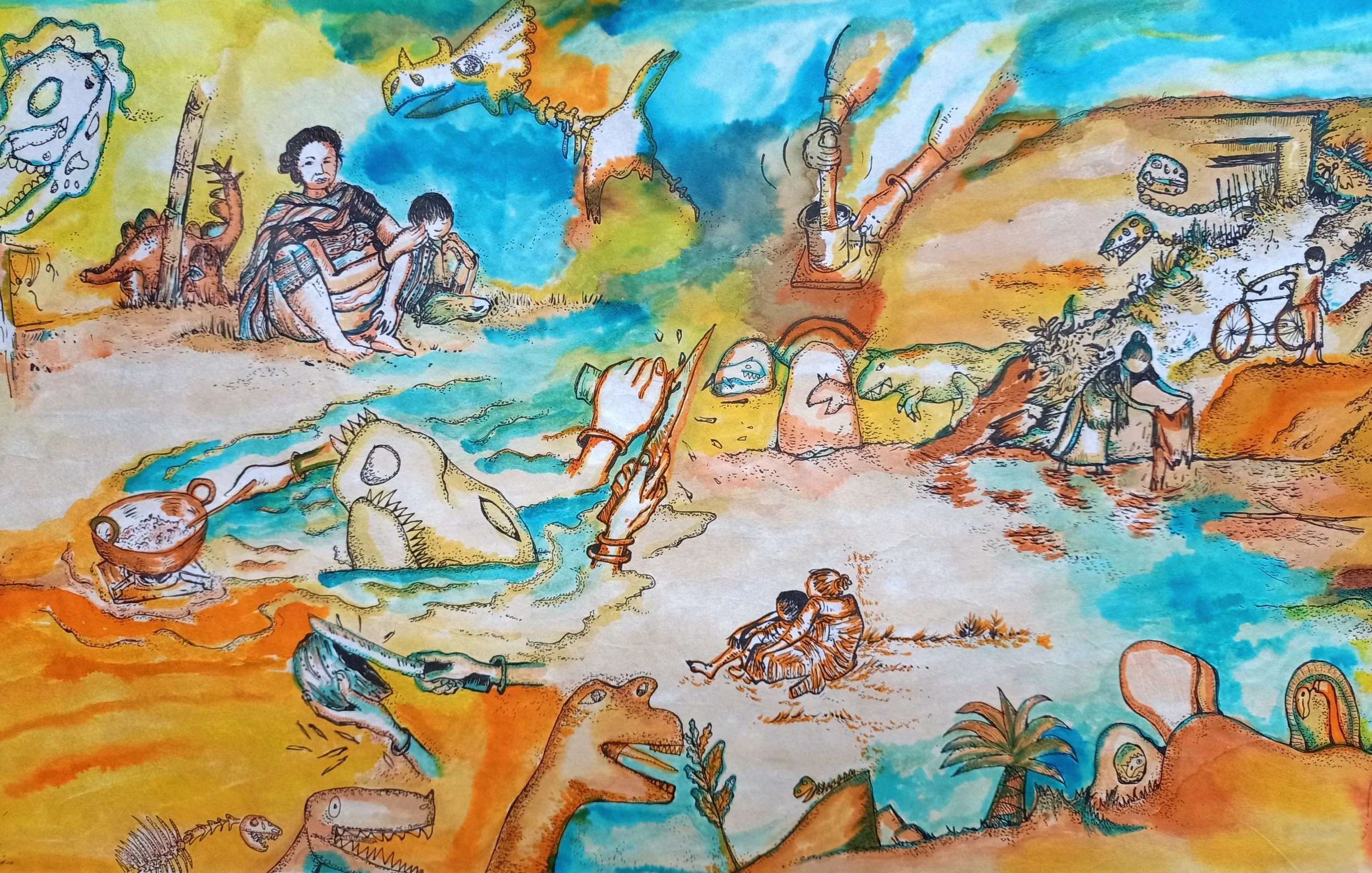
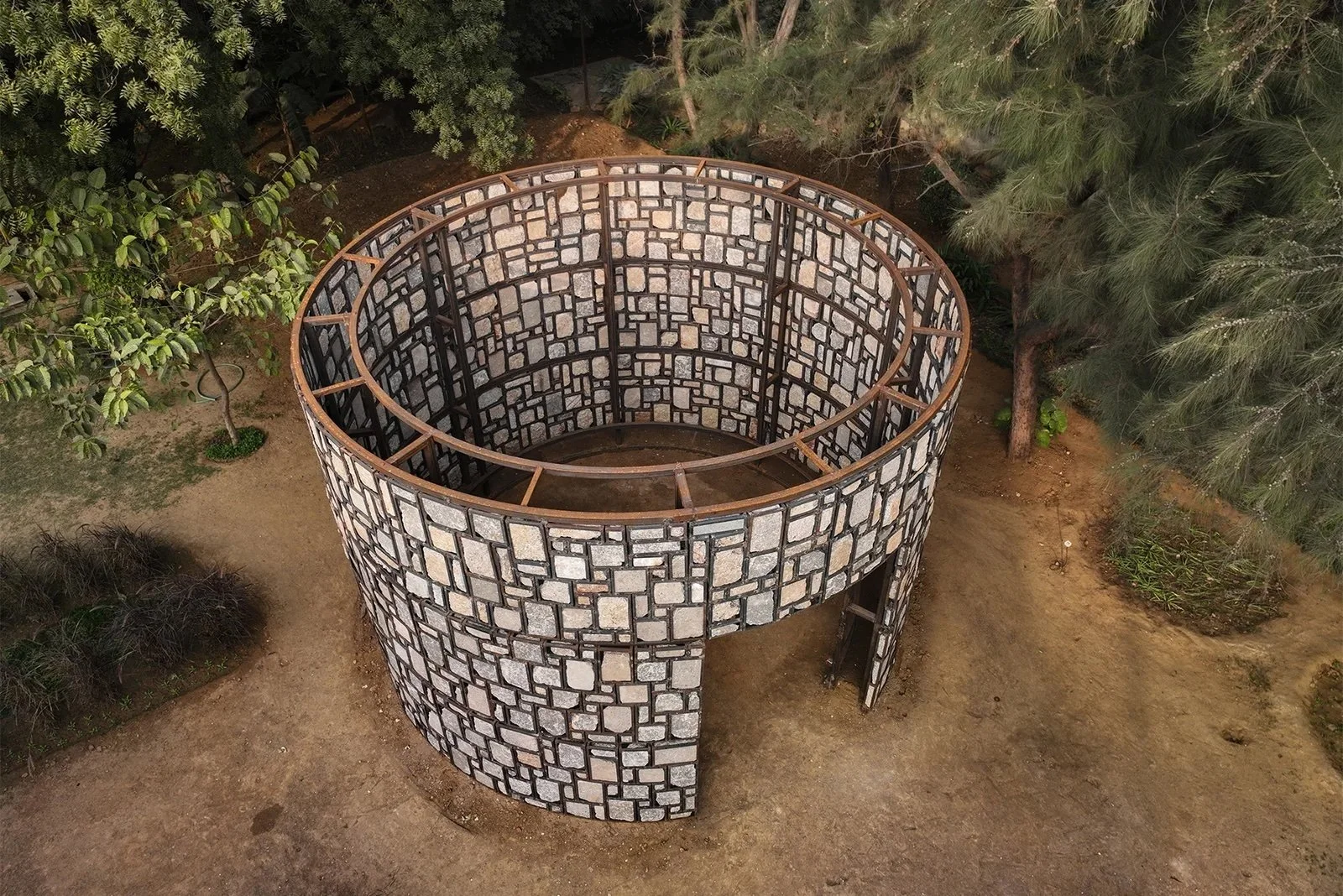
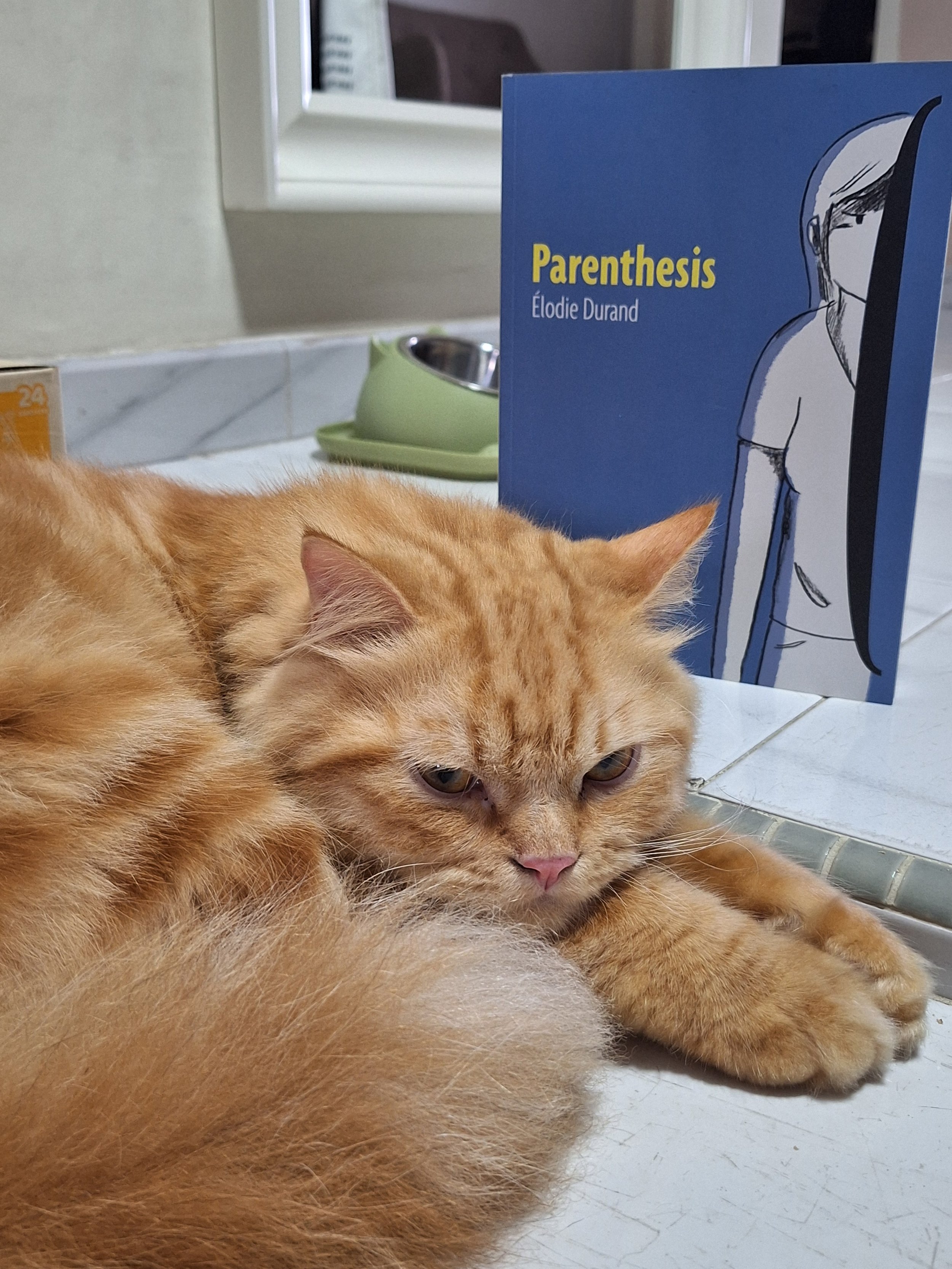
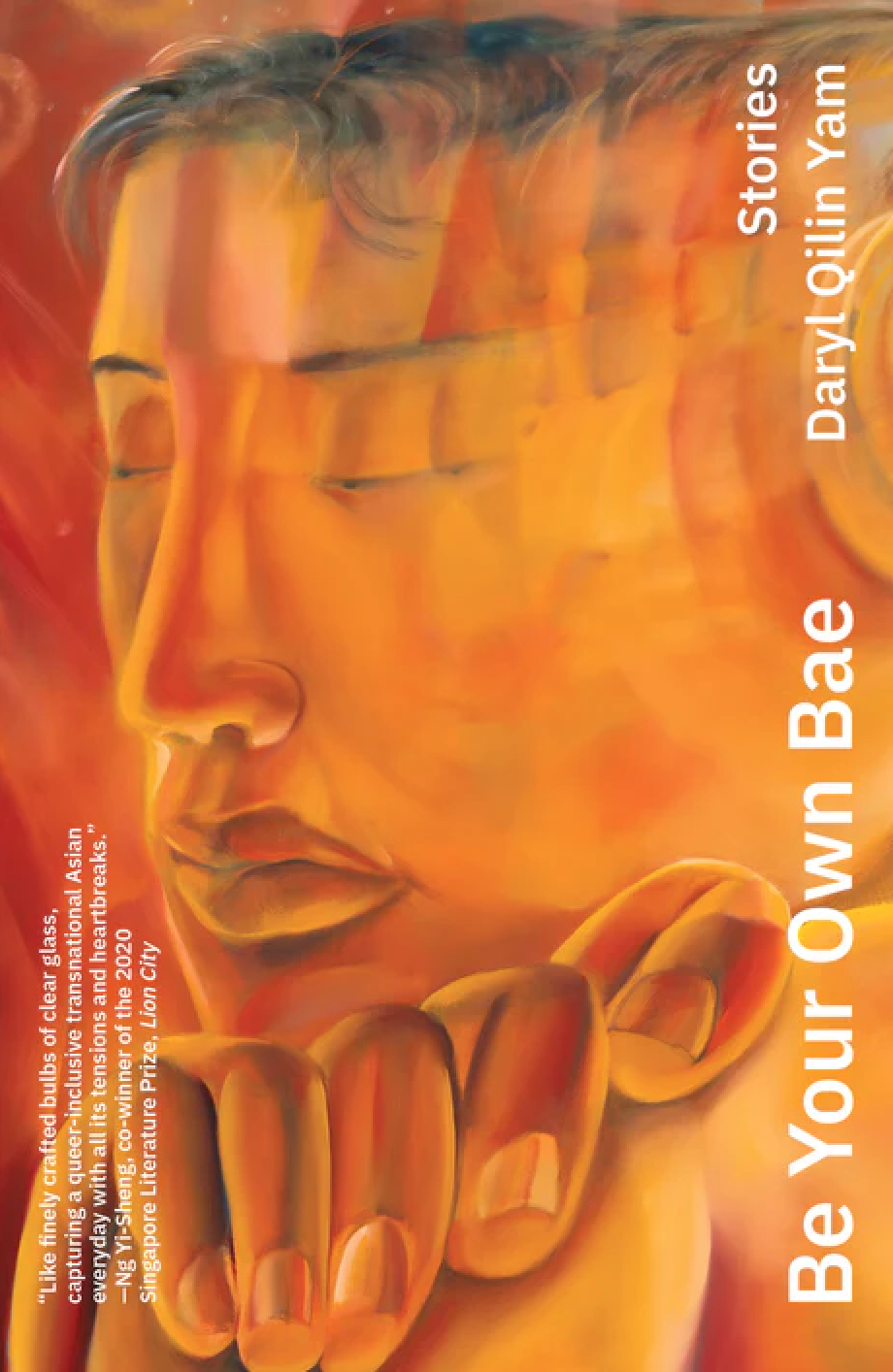
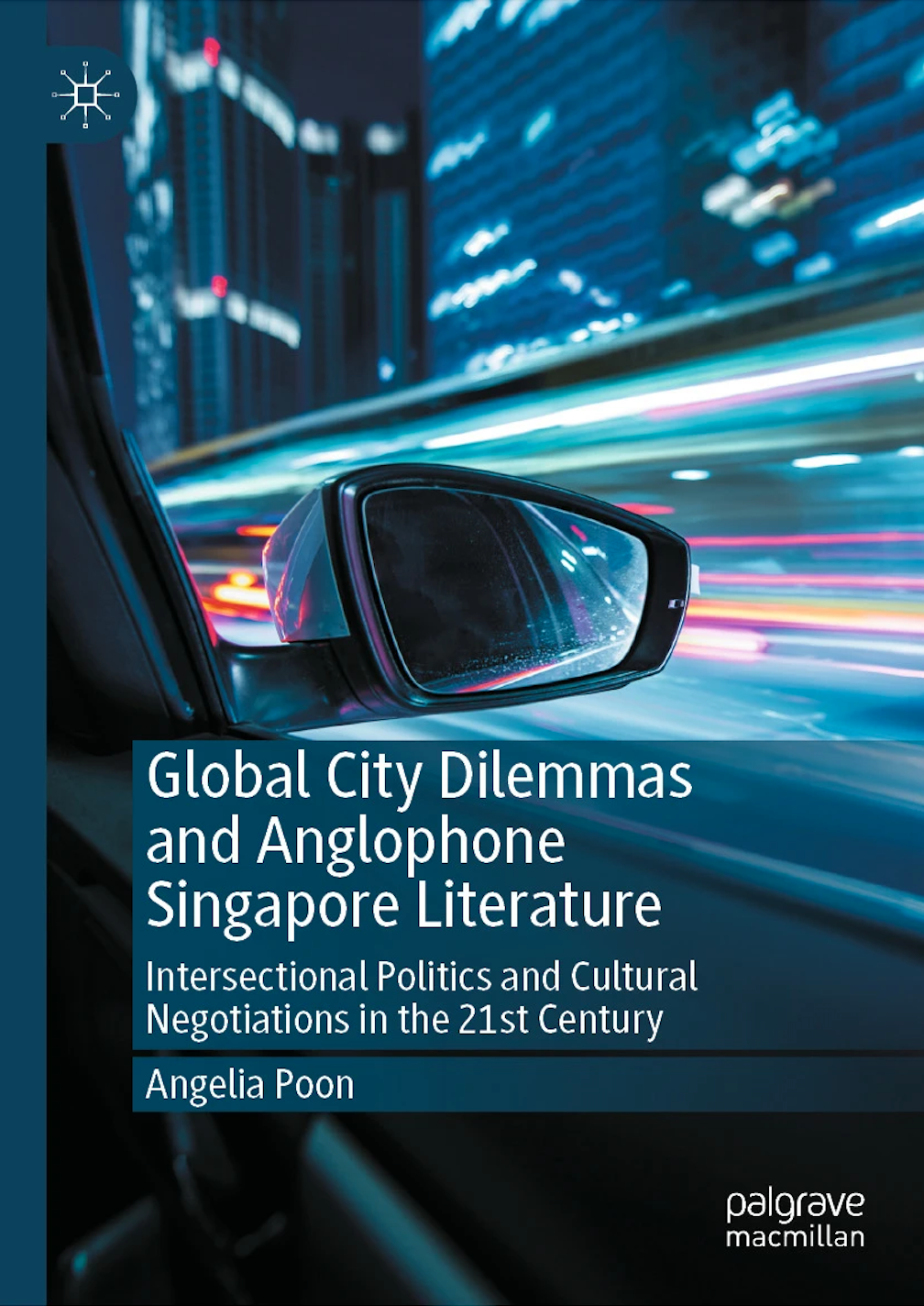


‘Style, tone, and form aren’t just decoration—they’re the architecture of meaning... A plastic chalice cannot hold sacred wine.’ – an essay on meaning-making by Chadawan Yuddhara.